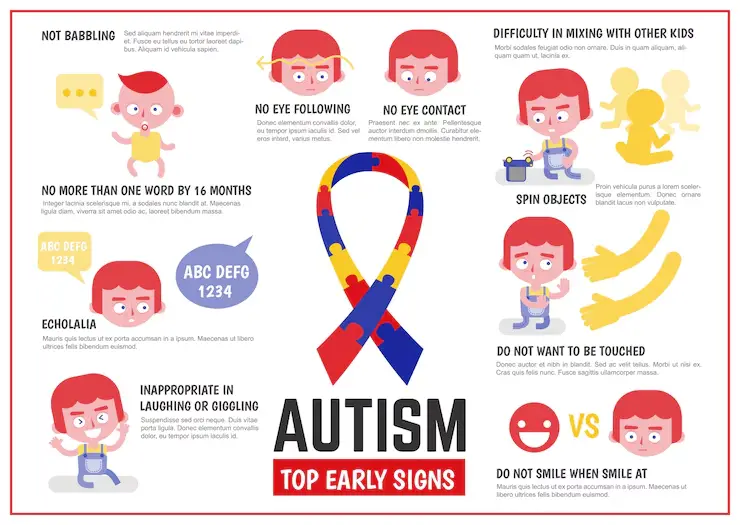Exploring the Pros and Cons of ABA Therapy for Autism and Other Disorders

Page Contents
Introduction
Applied Behavior Analysis (ABA) therapy is widely recognized as a leading intervention for Autism Spectrum Disorder (ASD) and other developmental disorders. While ABA therapy has demonstrated significant benefits in promoting skill acquisition, reducing problem behaviors, and enhancing quality of life for individuals with ASD, it also has its critics and limitations. This article examines the pros and cons of ABA therapy, offering a balanced perspective on its effectiveness, ethical considerations, and areas for improvement.


Exploring the Pros and Cons of ABA Therapy for Autism and Other Disorders
5 Pros of ABA Therapy
- Evidence-Based Approach: ABA therapy is supported by a robust body of empirical research demonstrating its effectiveness in addressing core deficits associated with ASD and other developmental disorders. Rigorous scientific inquiry has validated the efficacy of ABA interventions in promoting positive behavior change and improving outcomes for individuals across the lifespan.
- Individualized Treatment: ABA therapy is highly individualized, tailored to the unique needs, strengths, and challenges of each client. Therapists conduct comprehensive assessments, develop personalized intervention plans, and implement strategies that target specific skills and behaviors, maximizing the likelihood of success and meaningful progress.
- Promotes Functional Skills: ABA therapy focuses on teaching functional skills that enhance independence, social interaction, communication, and adaptive functioning. By targeting skills relevant to daily life and meaningful activities, ABA therapy empowers individuals to participate more fully in their communities and achieve greater autonomy.
- Early Intervention: ABA therapy is most effective when initiated early, ideally during the preschool years or even earlier. Early intensive behavioral intervention (EIBI) has been shown to yield significant gains in cognitive, language, and social development, capitalizing on the brain’s plasticity and critical periods of development to promote optimal outcomes.
- Parent Involvement and Support: ABA therapy emphasizes the importance of parent involvement and collaboration in the treatment process. Parents are integral members of the therapy team, receiving training, support, and guidance to implement strategies and promote generalization of skills in natural settings. This partnership fosters continuity of care, enhances family functioning, and empowers parents to support their child’s progress outside of therapy sessions.

5 Cons of ABA Therapy
- Intensive Time and Resource Demands: ABA therapy often requires a significant time commitment and financial investment, particularly for intensive early intervention programs. The recommended dosage of 25 to 40 hours per week of therapy may be challenging to implement for some families due to logistical constraints, cost considerations, and competing demands.
- Limited Generalization and Maintenance: While ABA therapy focuses on teaching skills in structured settings, generalization of skills to natural environments and maintenance of gains over time can be challenging. Ensuring that skills are practiced and maintained across settings, contexts, and social interactions requires ongoing support, reinforcement, and programming for generalization.
- Potential for Overemphasis on Compliance: Critics of ABA therapy raise concerns about its emphasis on compliance and conformity, which may prioritize behavioral control over individual autonomy and self-determination. Critics argue that rigid adherence to ABA principles and techniques may overlook the unique perspectives, preferences, and needs of individuals with ASD, leading to a focus on surface-level behaviors rather than addressing underlying needs and motivations.
- Ethical Considerations and Controversies: Ethical considerations surrounding ABA therapy include concerns about coercion, aversives, and intrusive interventions that may compromise individual dignity, autonomy, and well-being. Controversies surrounding the use of punishment-based techniques, such as time-out or response cost, raise ethical questions about their potential adverse effects and long-term consequences on mental health and self-esteem.
- Cultural Sensitivity and Diversity: ABA therapy‘s universal applicability and cultural sensitivity have been questioned, particularly in diverse and multicultural contexts. Critics argue that ABA interventions may not always be culturally responsive or respectful of individual differences, cultural values, and community norms, highlighting the need for culturally competent and inclusive practices.
Conclusion
Applied Behavior Analysis (ABA) therapy offers significant benefits for individuals with Autism Spectrum Disorder (ASD) and other developmental disorders, including evidence-based interventions, individualized treatment, and functional skill development. However, ABA therapy also presents challenges and limitations, including intensive time and resource demands, concerns about generalization and maintenance, ethical considerations, and cultural sensitivity issues. By acknowledging both the pros and cons of ABA therapy, stakeholders can engage in informed discussions, advocate for best practices, and strive for continuous improvement in supporting the diverse needs of individuals with ASD and other developmental disorders.






